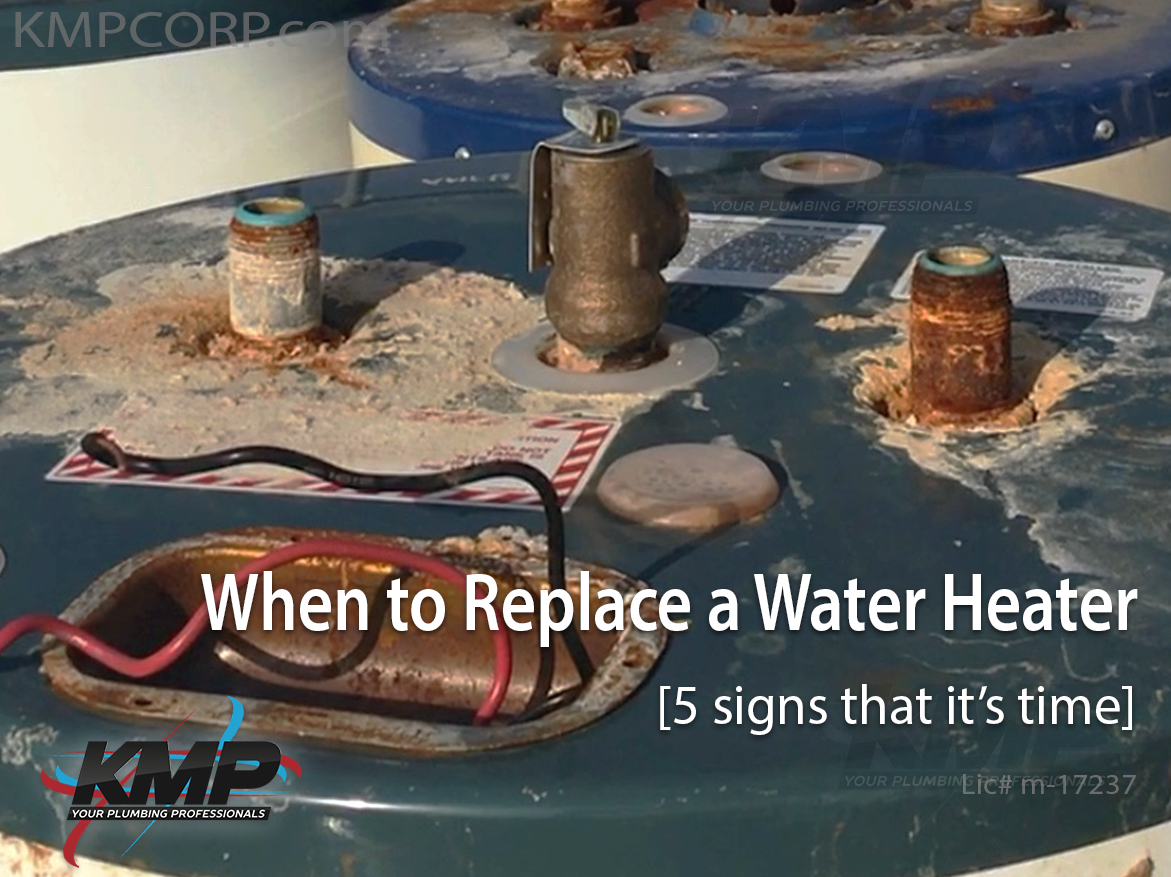plumbing maintenance for homeowners
Plumbing problems can be prevented by regular plumbing maintenance. We recommend checking your home's water heater at least twice a year.
Home Water Damage Statistics - Water Heaters
- Water heater failure is one of the top 5 sources of residential water losses.
- Water heater failures cost an average of $4,444 per incident after the deductible was paid.
- 69% of all water heater failures result from a slow leak or sudden burst.
*Stats from IBHS Water Damage Studies read more about base leaks here
(A water heater burst in the home looks like this 👆)
Consider these 5 signs
-
Water heater age
-
Rust
-
Leaks
- Temperature
- Popping/Knocking noise
- If you have any questions, concerns, or need a plumbing professional, give us a call at 817-453-8028. KMP offers a convenient way to schedule service online: www.kmpcorp.com/schedule-service/.
1. AGE
Consider replacing a water heater that is 10 yrs or older.
Most water heater failures occur when the unit has reached its life expectancy of 8-12 years. The older your water heater is, the more likely it is to fail.
If your water heater has made it 12 yrs, there's good and bad news. The good news is: that's longer than most units 'live', the bad news is: it's prob time to replace if you're having problems.
2. RUST
Water heaters fail due to rust and corrosion.
Almost all water heater failures, 'boil down' to 2 things: rust and corrosion. As the tank deteriorates, the chances of a leak or sudden burst increase. There is no way to reverse rust/corrosion. If rust is present, and the tank is not leaking: it will soon.
Much like a car, proper maintenance can extend the life of your water heater, and delay the need to replace.
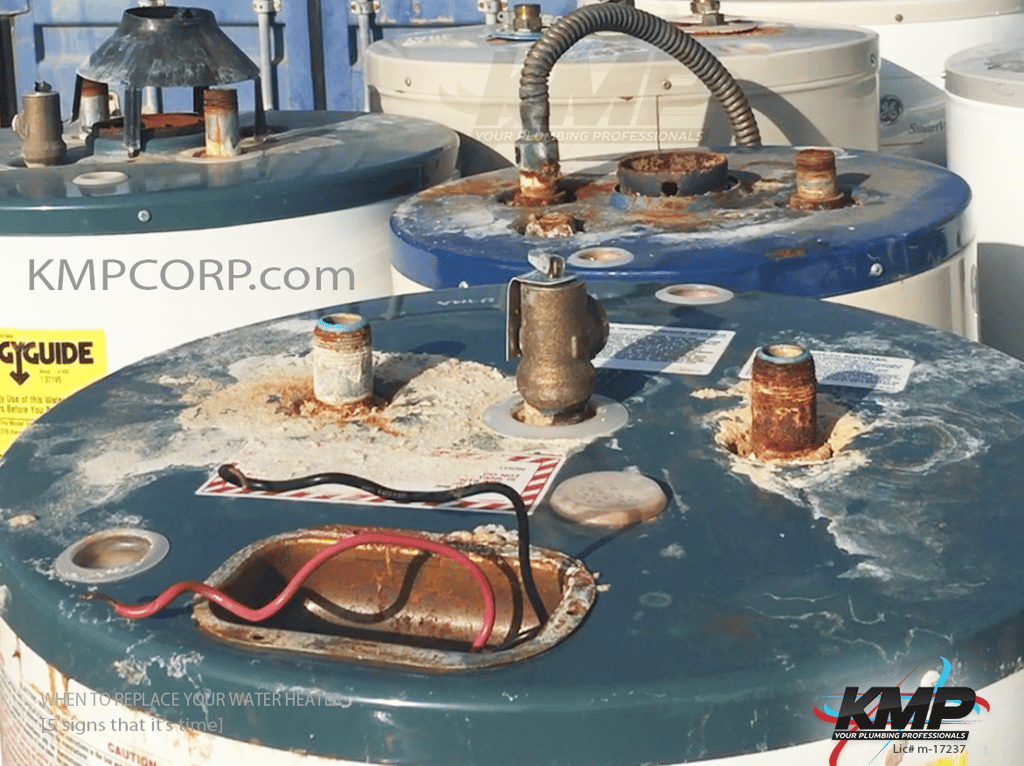
- Cause: steel + water = rust and corrosion.
- Effect: Rust, corrosion, tank deterioration
- How to prevent:
- Inspect/replace the “sacrificial” anode rod once a year. Rod will need to replacement every 4-5 years depending on the type of water you have.
- Flush/drain the tank at least once a year.
- Note: There is no way to reverse rust/corrosion.
- If rust is present, and the tank is not leaking: it will soon.
Where to check for rust:
- Around top/bottom of tank.3. LEAKS
A leaking tank is a sign you need a new water heater.
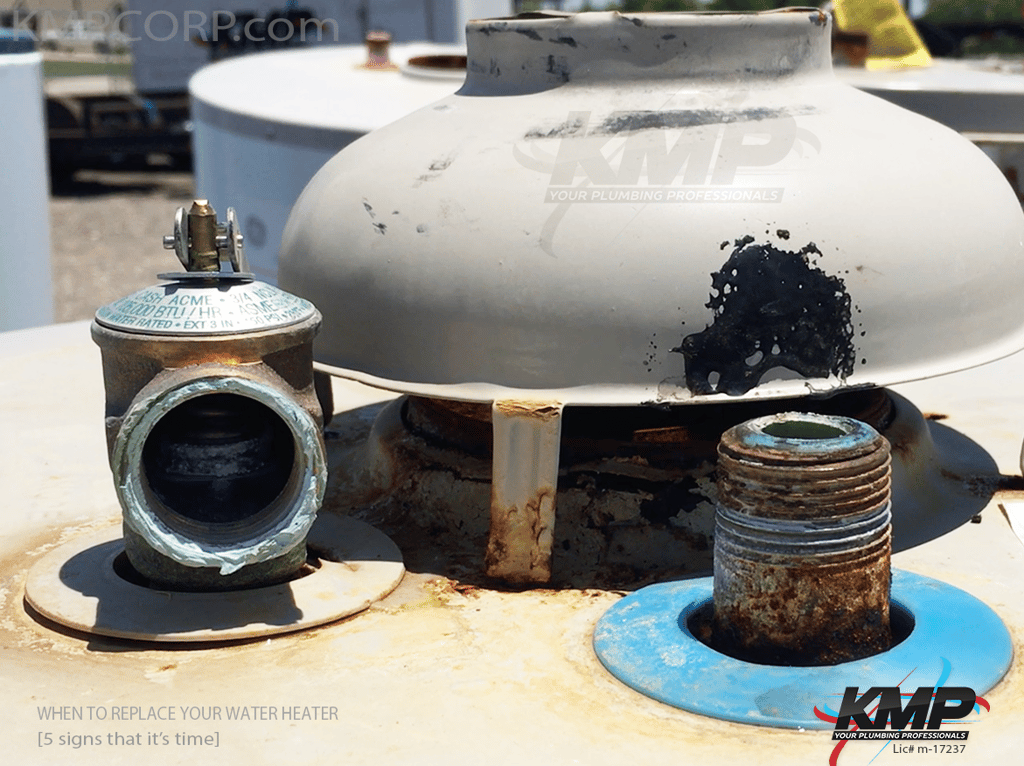
Check for leaks in these places:
- Pressure relief valve
- Drain valve
- Tank (top/bottom) - A leak from your water heater tank is usually cause by an internal problem and is rarely repairable.
- Depending on where the leak is coming from, as well as the age and condition of your water heater: you may be able to repair it. Take into consideration: the cost of the repair, and the life expectancy of the water heater after the repair.
- Remember: There is no way to reverse rust/corrosion.
- How to prevent: Water Heater Maintenance
- Note: Prevent further water damage from leaks by shutting off the water and power to your water heater. Call a professional.
4. Temperature
Water is lukewarm or not getting hot.
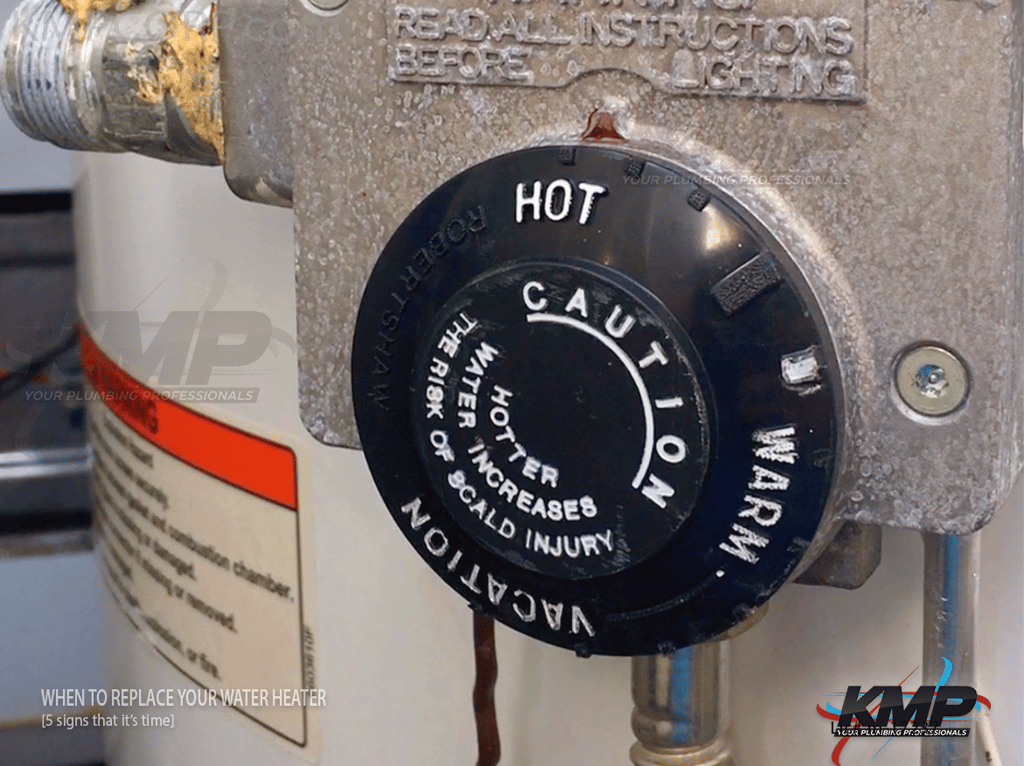
- Cause: Usually a sign one or more of the parts has failed including: heating element, thermostat, dip tube.
- Parts deteriorate over time, and need replacing throughout the water heaters lifespan. Depending on the age of the water heater, lukewarm water is a sign the unit most likely needs replaced.
5. NOISE
Water heater is making a popping or knocking sound.
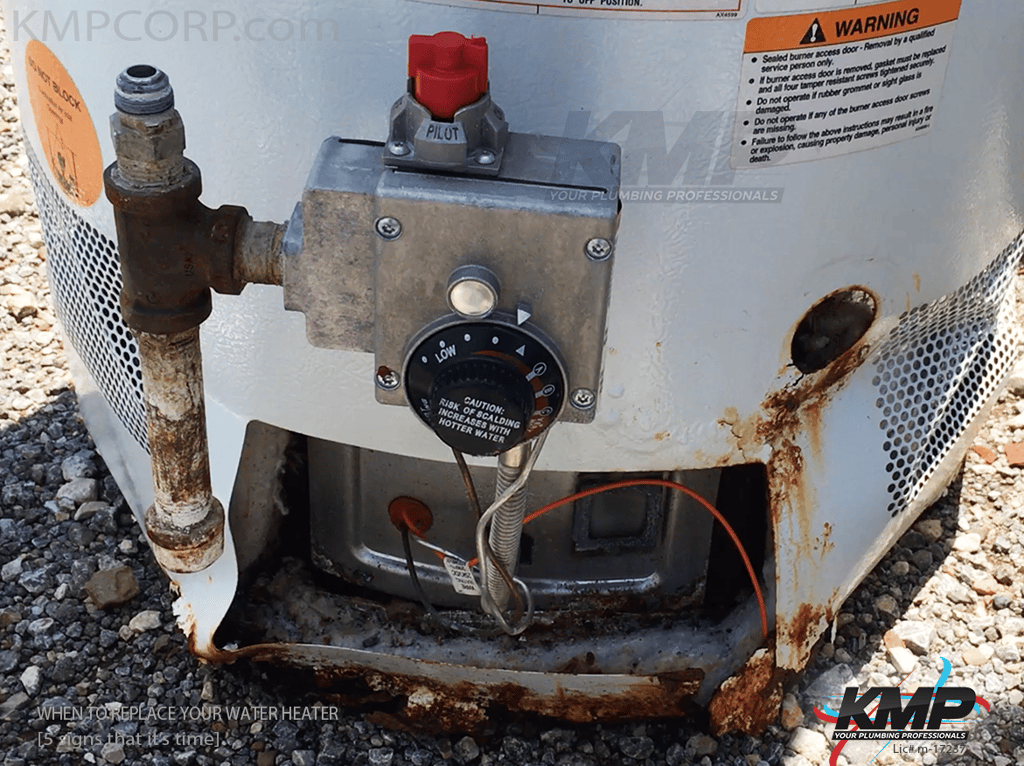
- Cause: sediment build up
- Sediment from hard water, builds and develops on the inside of the water heater tank.
- The noise you hear is water trapped under a layer of minerals. As the water bubbles up you will hear a popping or knocking sound.
- Effect: Minerals settle at the bottom on the burner causing the unit to overheat as it runs longer to heat water.
- How to prevent: Flush your water heater once a year to help prevent sediment build up and extend the life of your water heater.
- Note: Draining a water heater with significant amount of sediment build-up can cause leaks.
- If your water heater is making noise, plan on replacing it soon to avoid the risk of a sudden burst and water damage.
6. REPAIR OR REPLACE
If you determine the water heater needs REPAIRED, consider the following:
- Cost of the repair.
- Life expectancy of water heater after the repair.
- Cost of a new unit with labor.
If you determine the water heater needs to be REPLACED, consider the following:
- Type of unit. Will you be replacing with the same type of water heating system?
- Have you considered a tankless unit?
- Size: Does the current unit meet the needs of your home or is a larger water heater needed.
Remember
-
Plumbing problems can be prevented by regular plumbing maintenance.
-
The best way to prevent water heater related water damage:
-
take care of the water heater repair as soon as plumbing problems occur.
-
check your home's water heater at least twice a year.
- prevent water heater problems with regular water heater maintenance.
-
Plumbing problems can be so frustrating they can 'drive a preacher to drinkin'. When you realize it's time to call a plumber: how do you know who to call? Do you need a 24-hour plumber ? Before you open your pocket book be sure to do your research and know your plumber. Thinking of switching to tankless? 6 REASONS TO MAKE THE SWITCH
KMP makes scheduling plumbing repairs easy SCHEDULE PLUMBING SERVICE ONLINE

